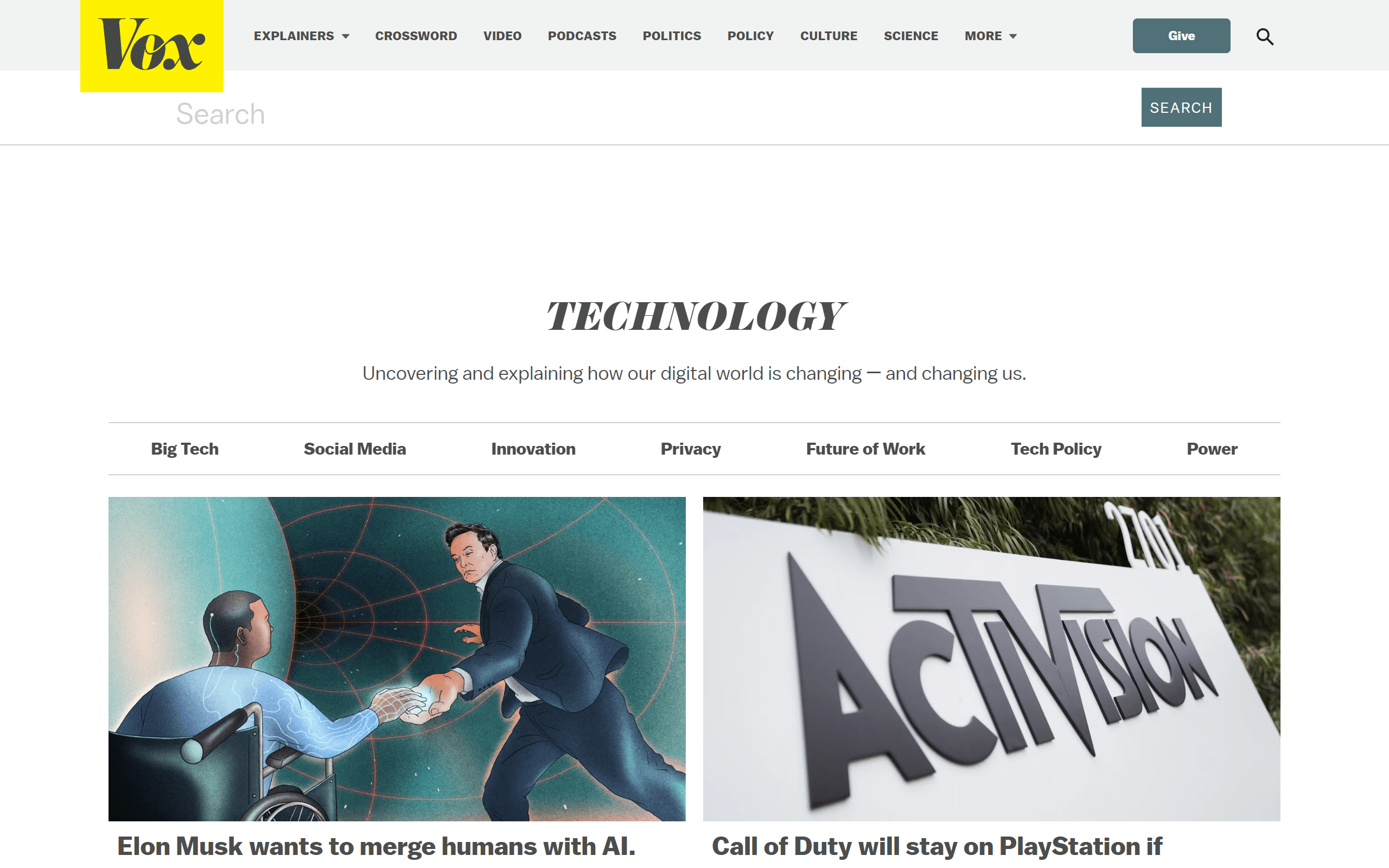The Advancement of the Best tech blog: A Journey Via Tech History and Future Trends
Exactly How Blockchain Innovation Is Revolutionizing Data Protection
Blockchain technology is essentially altering the landscape of data protection by introducing a decentralized framework that guarantees enhanced transparency and strength. Unlike traditional systems, which depend on centralized information databases, blockchain distributes data across a network, reducing susceptabilities and single points of failure. Making use of sophisticated cryptographic techniques ensures that data stays tamper-proof, fostering count on among individuals and stakeholders. As markets quickly adjust to this innovation, inquiries develop concerning its wider effect and possible difficulties. What implications does this shift hold for future data security methods and regulatory frameworks? The responses may shock you (Best tech blog).
The Essentials of Blockchain
Blockchain modern technology, a cutting edge concept in digital data monitoring, fundamentally changes exactly how information is saved and secured. At its core, a blockchain is a distributed ledger that tapes deals across a network of computer systems, guaranteeing transparency and immutability. The technology operates a chain of blocks, each consisting of a listing of purchases. When a block is filled, it is time-stamped and linked to the previous block, producing a chronological chain.
Secret to understanding blockchain is the hashing procedure, which secures transaction data into an one-of-a-kind alphanumeric code. This cryptographic feature makes certain that any kind of alteration in the transaction data results in an entirely various hash, consequently protecting against tampering. The agreement device, an additional vital component, validates and verifies new transactions with a network of nodes, therefore getting rid of the requirement for a central authority.
Furthermore, blockchain's append-only framework makes sure that information, once included, can not be removed or modified. This particular guarantees a permanent and verifiable record of purchases, promoting count on among individuals. Therefore, blockchain supplies a durable framework for information integrity, offering sectors a trustworthy approach for tracking and managing electronic info in a secure, clear way.
Decentralization and Protection
Decentralization, a core concept of blockchain technology, dramatically boosts data protection by distributing control across a network rather than depending on a single, centralized entity. By dispersing information across numerous nodes, blockchain makes sure that also if one node is endangered, the entire network remains safe.

Furthermore, decentralization equips users with higher control over their information. Each individual in the network has access to the whole blockchain, permitting them to confirm and audit purchases independently. This transparency promotes count on among customers, as they do not need to rely upon a main authority to guarantee data stability. Overall, decentralization is instrumental in boosting information security in blockchain networks.

Cryptographic Techniques
At the heart of blockchain modern technology, cryptographic methods play an essential function in protecting data, ensuring both privacy and stability. These methods are fundamental to the blockchain's capacity to securely tape-record transactions in a decentralized fashion. Cryptography in blockchain utilizes a combination of uneven and symmetrical algorithms to encrypt data, making it accessible only to licensed events - Best tech blog. Public and personal crucial pairs are central to this procedure, permitting safe and secure authentication and identification verification without pop over to these guys exposing delicate information.
Hash features are another essential element, changing input data right into a fixed-size string of personalities, properly producing a distinct digital finger print for each block. This makes sure that any attempt to modify the information will result in a completely various hash, hence keeping the immutability of the blockchain. Digital trademarks verify the authenticity and honesty of deals, providing a layer of non-repudiation.
The decentralized nature of blockchain, combined with robust cryptographic strategies, eliminates the need for intermediaries, decreasing prospective susceptabilities. As blockchain innovation develops, developments in cryptography such as zero-knowledge proofs and homomorphic encryption remain to enhance safety actions, better fortifying data defense in this innovative digital ledger system.
Usage Situations Throughout Industries

In the health care industry, blockchain makes certain the secure storage and sharing of individual records, promoting interoperability while protecting delicate information from unapproved accessibility. This innovation encourages individuals with control over their medical history and facilitates smooth sychronisation amongst doctor.
Supply chain management advantages substantially from blockchain's immutable journal, which ensures traceability and credibility of items from origin to consumer. By improving openness, blockchain aids minimize issues such as counterfeiting and underhanded sourcing.
Furthermore, blockchain's decentralized nature is improving the power sector by allowing peer-to-peer energy trading, where consumers can purchase and sell excess renewable energy straight. This cultivates a more sustainable and reliable power environment.
In the world of copyright, blockchain read the full info here offers a tamper-proof system for makers to sign up and secure their jobs, making sure rightful acknowledgment and fair payment. These diverse use instances highlight blockchain's role as a crucial force in redefining data security throughout sectors.
Future of Information Defense
As we aim to the future of information protection, blockchain innovation is poised to play a pivotal role in safeguarding electronic details. With its decentralized and immutable qualities, blockchain uses a durable framework for securing sensitive data versus unauthorized accessibility and cyber risks. This technology makes sure that once information is videotaped, it is virtually impossible to modify without discovery, therefore supplying a substantial advantage over conventional information storage techniques.
The integration of blockchain with various other advanced innovations, such as fabricated knowledge and the Web of Points (IoT), is expected to boost data protection techniques even more. By leveraging wise agreements, companies can implement and automate protection procedures, reducing human error and enhancing effectiveness. In addition, blockchain's capability to offer traceable and clear deals will strengthen trust fund and responsibility in information administration practices.
As governing landscapes evolve, blockchain's compliance-friendly nature will become progressively appropriate. It can help organizations meet rigid information defense guidelines, such as the General Data Defense Guideline (GDPR) and the California Customer Privacy Act (CCPA), by providing verifiable records of data processing activities. Eventually, blockchain's one-of-a-kind qualities setting it as a transformative tool in the recurring quest to protect the electronic world against ever-evolving cyber hazards.
Verdict
Blockchain innovation represents a paradigm change in information safety and security by leveraging decentralization and cryptographic strategies to improve openness, trust fund, and information stability. Its capability to eliminate solitary points of failing and utilize consensus systems considerably lowers the risk of fraud and cyberattacks. This cutting-edge framework not just equips individuals with greater control over their data yet likewise aligns with regulatory conformity. As cyber threats develop, blockchain arises as a crucial device for durable information defense throughout various markets.
Blockchain modern technology is essentially modifying the landscape of data safety and security by introducing a decentralized framework that guarantees improved transparency and durability. Unlike typical systems, which count on central data databases, blockchain distributes data throughout a network, minimizing susceptabilities and single factors of failing.Decentralization, a core concept of blockchain innovation, considerably enhances data protection by distributing control throughout a network instead than relying on a singular, centralized entity.At the heart of blockchain technology, cryptographic methods play check out here a critical duty in securing data, making certain both confidentiality and honesty.Blockchain modern technology represents a standard shift in data security by leveraging decentralization and cryptographic methods to boost openness, trust, and data honesty.